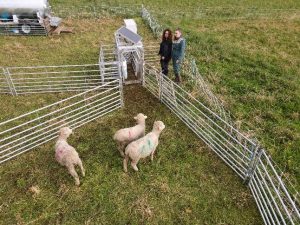
INRAE, a world’s leader institute for research on agriculture, food and the environment, carries out mission-oriented researches to address global current and future challenges faced by humankind and the planet. Actions aims limiting the effects of and adapting to climate change; increasing food security and nutrition security; transitioning to new and better adapted agricultural systems; preserving natural resources; restoring biodiversity; and anticipating and managing risks, while considering more regional issues like traditions, cultures, living conditions, farmers’ salaries, the economic competitiveness of companies, land use, and universal access to healthy and varied diets. INRAE use research, innovation, and support for public policies as tools to guide the emergence of sustainable agricultural and food production systems. It aims to carry out science dedicated to life, humans, and the Earth that uncovers solutions to our most pressing concerns. In TechCare, two research units provide complementary expertise i.e. i) the Joint INRAE-CIRAD-Montpellier SupAgro SELMET (Systèmes d’élevage Méditerranéens et Tropicaux) and ii) the Joint MISTEA (Mathématiques, Informatique et STatistique pour l’Environnement et l’Agronomie) that bring together researchers from the departments INRAE MIA (Applied Mathematics and Informatics) and Montpellier SupAgro SABP (Sciences for Agri-Bio-Processes). In the scope of TechCare, INRAE provide inputs in several work-packages, with specific focus in WP3, which aims prototyping, adapting and testing PLF tools for small ruminant welfare, but also in WP4 (Data and early warning systems development).
 Dr. Eliel González-García is an animal nutritionist, researcher at INRAE, with specialisation in adaptive capacities of ruminants reared in harsh environments and in the development and evaluation of sustainable animal production systems. Based at Montpellier, he holds MSc. and PhD. degrees in Animal Science from the Wageningen Agricultural University (The Netherlands) and Universitat Autònoma de Barcelona (UAB, Spain), respectively, and has a career basically developed in tropics and Mediterranean environments, with experience in leading national and international research and development projects. During the last years he has been developing an autoweighing system for small ruminants (Walk-over-Weighing, WoW) which also contributes to estimate, indirectly, the individual daily forage intake in a spectrum of environments. Eliel is the leader of the WP3 and his research activities in the scope of TechCare are mainly focused on the evaluation of the WoW in interaction with other devices and tools, for addressing animal welfare issues such as undernutrition or health constraints, under outdoor and/or indoor conditions.
Dr. Eliel González-García is an animal nutritionist, researcher at INRAE, with specialisation in adaptive capacities of ruminants reared in harsh environments and in the development and evaluation of sustainable animal production systems. Based at Montpellier, he holds MSc. and PhD. degrees in Animal Science from the Wageningen Agricultural University (The Netherlands) and Universitat Autònoma de Barcelona (UAB, Spain), respectively, and has a career basically developed in tropics and Mediterranean environments, with experience in leading national and international research and development projects. During the last years he has been developing an autoweighing system for small ruminants (Walk-over-Weighing, WoW) which also contributes to estimate, indirectly, the individual daily forage intake in a spectrum of environments. Eliel is the leader of the WP3 and his research activities in the scope of TechCare are mainly focused on the evaluation of the WoW in interaction with other devices and tools, for addressing animal welfare issues such as undernutrition or health constraints, under outdoor and/or indoor conditions.
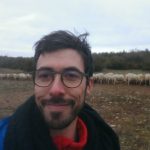 Dr Jean-Baptiste Menassol is an associate professor at SELMET. He holds a MSc in farm animal production in harsh environments (Montpellier SupAgro) and a PhD (Université de Tours, 2013) in neurobiology. His latest research interests lie in the prototyping and use of digital tools to monitor inter-individual proximities and study the structure of social networks in flocks. More particularly he is interested in unravelling how the knowledge of complex social interactions within a group of animals can improve farming practices, farm animal welfare and farm animal health. In TechCare, Jean-Baptiste is mainly involved in WP3 and 4 evaluating the potential of GNSS (outdoor) and proximity sensors technologies to address abnormal individual or social behaviour through indicators such as movement patterns, resource exploration, behavioural organization or social integration. The whole, for finally developing early warning systems linked to location, behaviour, health status, rotational grazing or the management of grazing areas.
Dr Jean-Baptiste Menassol is an associate professor at SELMET. He holds a MSc in farm animal production in harsh environments (Montpellier SupAgro) and a PhD (Université de Tours, 2013) in neurobiology. His latest research interests lie in the prototyping and use of digital tools to monitor inter-individual proximities and study the structure of social networks in flocks. More particularly he is interested in unravelling how the knowledge of complex social interactions within a group of animals can improve farming practices, farm animal welfare and farm animal health. In TechCare, Jean-Baptiste is mainly involved in WP3 and 4 evaluating the potential of GNSS (outdoor) and proximity sensors technologies to address abnormal individual or social behaviour through indicators such as movement patterns, resource exploration, behavioural organization or social integration. The whole, for finally developing early warning systems linked to location, behaviour, health status, rotational grazing or the management of grazing areas.
 Dr Nathalie Debus is an INRAE researcher at SELMET. She holds an engineering degree in agronomy with a specialization in animal science and a PhD. in Systems of Intracellular Communications in Endocrinology and currently carries out research in physiology of reproduction and sexual behaviour, particularly in Mediterranean extensive sheep production systems. Nathalie’s latest research interests are focused in improving the ram effect efficiency and the use of such natural synchronization method to promote reproduction without hormones, a hot subject and societal demand. She is part of the team that develops a method and device for the automatically detection of natural mating in farm animals and is mainly involved in the WP3 of the TechCare project with actions around the interaction between the WoW and the Alpha heat detector (i.e., nutrition × reproduction).
Dr Nathalie Debus is an INRAE researcher at SELMET. She holds an engineering degree in agronomy with a specialization in animal science and a PhD. in Systems of Intracellular Communications in Endocrinology and currently carries out research in physiology of reproduction and sexual behaviour, particularly in Mediterranean extensive sheep production systems. Nathalie’s latest research interests are focused in improving the ram effect efficiency and the use of such natural synchronization method to promote reproduction without hormones, a hot subject and societal demand. She is part of the team that develops a method and device for the automatically detection of natural mating in farm animals and is mainly involved in the WP3 of the TechCare project with actions around the interaction between the WoW and the Alpha heat detector (i.e., nutrition × reproduction).
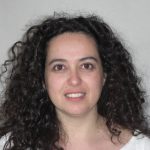 Irene Llach-Martínez is an agronomist in SELMET with previous experiences in the evaluation of PLF devices in ruminants (both small and large) and pigs, notably the use of different methods for individual electronic identification (different tags models, ruminal boluses…) and milking robots. In the TechCare project, Irene contributes as Engineer Assistant with a role to facilitate the links between the research team at Montpellier and the experimental facilities. She guarantees the well planning, launching and monitoring of research protocols carried out in the two INRAE experimental farms units i.e., Domaine de La Fage and Domaine du Merle, both based in the Mediterranean France.
Irene Llach-Martínez is an agronomist in SELMET with previous experiences in the evaluation of PLF devices in ruminants (both small and large) and pigs, notably the use of different methods for individual electronic identification (different tags models, ruminal boluses…) and milking robots. In the TechCare project, Irene contributes as Engineer Assistant with a role to facilitate the links between the research team at Montpellier and the experimental facilities. She guarantees the well planning, launching and monitoring of research protocols carried out in the two INRAE experimental farms units i.e., Domaine de La Fage and Domaine du Merle, both based in the Mediterranean France.
 Dr Bertrand Cloez, is an INRAE data scientist with expertise in mathematics, statistics and modelling in the Joint Research Unit MISTEA. Bertrand is participating mainly in the WP4 and in the interface between WP3 and 4.
Dr Bertrand Cloez, is an INRAE data scientist with expertise in mathematics, statistics and modelling in the Joint Research Unit MISTEA. Bertrand is participating mainly in the WP4 and in the interface between WP3 and 4.
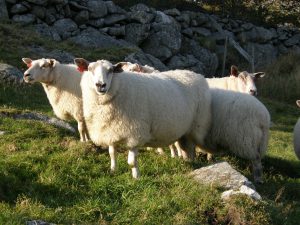
NIBIO, the Norwegian Institute of Bioeconomy Research, is one of the largest research institutes in Norway, and contribute to food security and safety, sustainable resource management, innovation and value creation through research and knowledge production. NIBIO delivers research, managerial support and knowledge for use in national preparedness, as well as for businesses and the society at large. Approximately 700 employees are present in all parts of the country with 15 locations across the country. The main office is located at Ås in Akershus, just outside Oslo. NIBIO is owned by the Ministry of Agriculture and Food as an administrative agency with special authorization and its own supervisory board. NIBIO has a substantial international portfolio with collaborative programmes being carried out in Europe within many scientific fields. The Institute participates in approximately 30 EU and EEA-projects. Rangeland, mountains, forest and uncultivated land cover most of Norway, and optimizing economic and environmental utilization of these areas, as well as the production potential, is essential as far as producing materials, natural assets and societal benefits in a green way is concerned. NIBIO aims to contribute to research-based knowledge of increased food security and food safety, and to support innovation and value creation in the entire value chain of agricultural and food production. NIBIO have access to research farm facilities; a sheep farm facility at Tjøtta. NIBIO has extensive network and longtime experience with on-farm research this being relevant for the TechCare project. NIBIO also have close collaboration with rangeland grazing industry, including a long experience in using GPS-collars and other sensor information for research purposes i.e. from sheep, reindeer, deer and mouse. This being highly relevant for the TechCare project. NIBIO produces applied knowledge for public governance, business communities and the society at large, and have platforms to communicate both nationally and internationally. NIBIO has significant input info most work packages in the TechCare project; particularly as co-leader in WP2 and WP3.
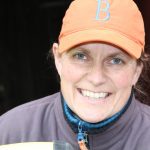 Dr Lise Grøva is the TechCare project facilitator for Norway, and co-leading WP3. She is a livestock scientist based at NIBIO office at Tingvoll in Mid Norway and has extensive experience with working with on farm research within sheep production systems, particularly focusing on health and welfare challenges in rangeland grazing systems. Current research interests are within the use of technology on sheep for health and welfare monitoring on rangelands. A main working area is on preventive measures, disease resistance and robustness related to tick-borne fever (TBF) in sheep, and early warning system related to this. She also has general interest within sustainable livestock rangeland grazing systems with particular focus on robust animals that cope with the environments we provide them.
Dr Lise Grøva is the TechCare project facilitator for Norway, and co-leading WP3. She is a livestock scientist based at NIBIO office at Tingvoll in Mid Norway and has extensive experience with working with on farm research within sheep production systems, particularly focusing on health and welfare challenges in rangeland grazing systems. Current research interests are within the use of technology on sheep for health and welfare monitoring on rangelands. A main working area is on preventive measures, disease resistance and robustness related to tick-borne fever (TBF) in sheep, and early warning system related to this. She also has general interest within sustainable livestock rangeland grazing systems with particular focus on robust animals that cope with the environments we provide them.
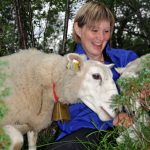 Dr Grete Helen Meisfjord Jørgensen is co-leading WP2. She is an animal scientist and ethologist working at NIBIO Tjøtta in Northern Norway. She is involved in both national and international projects on animal behavior, housing, welfare and environment, and has been working on pigs, dairy goats, sheep, horses, reindeer and cattle. Current research interests are within ethology, housing of domestic animals and animal welfare focusing on temperature regulation, air-quality, sensor-technology and preference studies including physical and social environment for indoor housing of sheep. She is also involved with measurement of greenhouse gases from animals in barns and on pasture.
Dr Grete Helen Meisfjord Jørgensen is co-leading WP2. She is an animal scientist and ethologist working at NIBIO Tjøtta in Northern Norway. She is involved in both national and international projects on animal behavior, housing, welfare and environment, and has been working on pigs, dairy goats, sheep, horses, reindeer and cattle. Current research interests are within ethology, housing of domestic animals and animal welfare focusing on temperature regulation, air-quality, sensor-technology and preference studies including physical and social environment for indoor housing of sheep. She is also involved with measurement of greenhouse gases from animals in barns and on pasture.
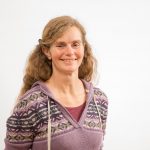 Dr Inger Hansen is an ethologist working at NIBIO Tjøtta in Northern Norway and she will be assisting all parts of the TechCare project, particularly related to networking activity and work on welfare, behavior and new technology. She is involved in numerous projects on animal behavior and welfare of sheep, reindeer and beef cattle in rangeland grazing systems. She is particularly working on surveillance of grazing animals using technology, related to loss of grazing animals to predators.
Dr Inger Hansen is an ethologist working at NIBIO Tjøtta in Northern Norway and she will be assisting all parts of the TechCare project, particularly related to networking activity and work on welfare, behavior and new technology. She is involved in numerous projects on animal behavior and welfare of sheep, reindeer and beef cattle in rangeland grazing systems. She is particularly working on surveillance of grazing animals using technology, related to loss of grazing animals to predators.
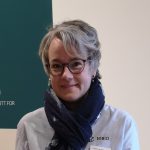
Dr Unni Støbet Lande, is a wildlife ecologist working at NIBIO Tingvoll in Mid Norway and she will be assisting all parts of the TechCare project, particularly on networking activity and understanding position data and behavior of grazing animal in extensive grazing systems. She has expertise in habitat analysis of wild ungulates and large carnivores as well as domestic grazing animals, and is involved in numerous projects on sheep, rangeland grazing systems, GIS and animal positions.
